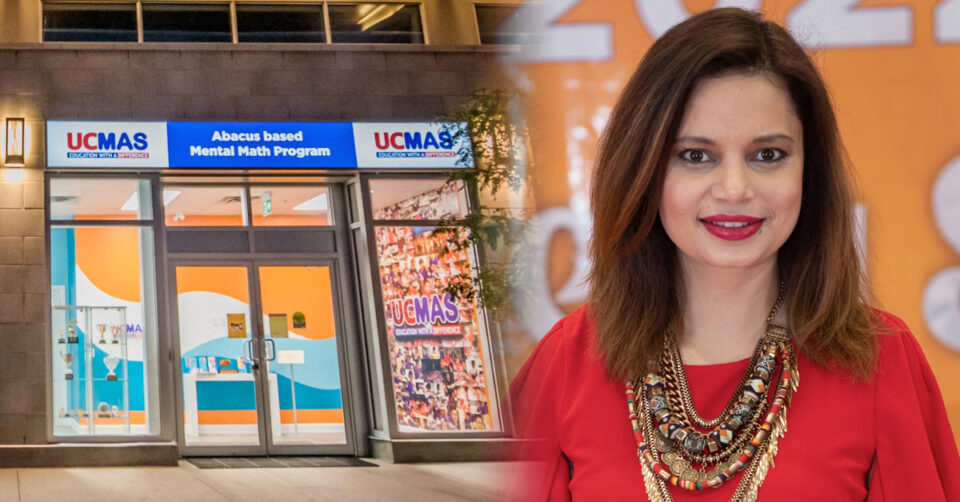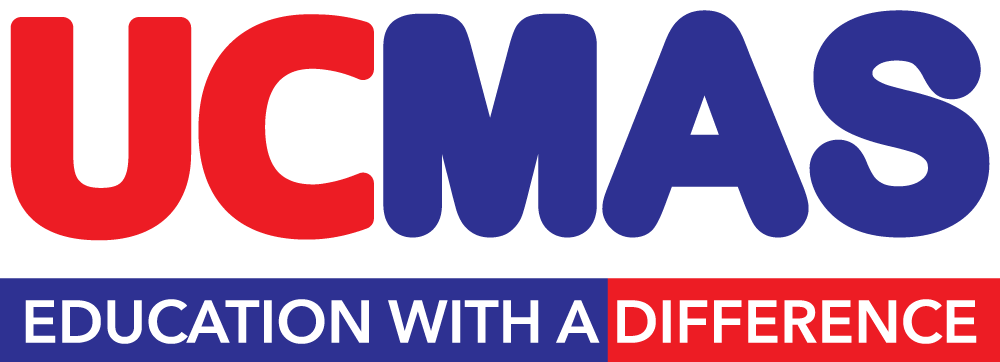Sometimes the best way to find opportunity is to make it for yourself, which is exactly how Megha Karia launched—and continues to grow—the UCMAS Canada brand
By Jordan Whitehouse
Megha Karia knows all too well the catch-22 of trying to land a job as an immigrant. In 2004, she and her husband had just arrived to Canada from India, eager to build a new life. But as they searched for work, they kept getting the same question from potential employers: “Do you have Canadian experience?” They didn’t, of course, and they ironically couldn’t get it without first getting Canadian jobs.
It was a demoralizing time, Karia remembers, but the two didn’t give up. Instead, they created their own jobs, launching a Canadian branch of the Universal Concept Mental Arithmetic System (UCMAS). It’s a popular child development program for kids aged five to 13 that’s based on mental math and abacus skills and has flourished in over 6,000 centres across more than 80 countries.
The couple had launched and managed three UCMAS locations in India, so they knew the concept well. But this time they weren’t just doing it for themselves. Their vision was for UCMAS Canada to be a springboard for others facing the same employment paradox they had. “We believed that immigrants like us, with our enthusiasm, our dreams, all of our different experiences from our own countries, could give back to this one,” says Karia.
Fast forward two decades, and that belief has become reality. Beginning with just one location in Toronto in 2004, UCMAS Canada now has nearly 90 centres nationwide. Almost all their Canadian franchisees are immigrants from over 20 different countries, and nearly 70 per cent of them are women. Half of the head office team are also women, and close to 700 women have served as course instructors.
In April, UCMAS Canada received the 2024 Diversity & Inclusion Champion Award at the CFA’s National Convention in Montreal. “I was really excited to get that,” says Karia. “Working with immigrants, working with women, is something that we’ve been doing forever, so to get recognized was just amazing.”
It’s an amazing time for the franchise in general, adds Karia, who is now the CEO of UCMAS North America. Not only is the company looking to spread into smaller markets across Canada, but they want to make an even bigger splash south of the border. There are already a handful of locations in the U.S., but the company hopes to keep expanding.
From vision to reality
Although UCMAS wasn’t foreign to the duo when they launched that first centre in Toronto, the early years weren’t easy. “There was basically no income,” says Karia. Part of the problem was that supplementary schooling wasn’t all that popular with Canadian parents at the time. Another was that similar programs in Canada weren’t usually centred on math.
None of it was strange to the Karias, however. For years, they had seen what UCMAS could do for the kids they taught back in India. Since its beginnings in Malaysia in 1993, the program has always had the abacus at its centre. Students initially use the tool to visualize numbers and perform rapid math calculations. As they progress, they move on to mental calculations by picturing the abacus in their minds. This blend of visualization and active learning is what proponents of the system say leads to dramatically higher levels of speed, efficiency, and accuracy—and not just in mathematics.
As UCMAS Canada slowly grew in the 2000s, one big reason for its early success was that parents were spreading the word about the program’s impact on their kids’ academics. Eventually, graduates who had gone on to some of the top universities in Canada—and the world—returned with stories of enhanced recall capacity, increased confidence, and good grades, with big thank yous to UCMAS Canada.
The program works because it’s based on a holistic approach, says Karia. “It combines mathematical techniques with brain development strategies, which makes it go beyond any kind of tutoring.”
UCMAS Canada has also expanded into many new educational territories, as Karia explains. “In today’s times, it’s become extremely crucial to cater to market needs, to have a good range of options for our clients (students) and an additional way for our franchisees to grow,” she says. To that end, the company has begun to offer new sought-after courses. “Robotics and coding through OBotz Canada is our recent offering designed for the STEM needs of the market. We also have i-Maths, an early enrichment concept-based math program for students aged three to seven, to get a head start in kindergarten and elementary school.” The company will also be releasing an English language program for students to enhance their reading, writing, comprehension skills, and more.
Another key to the franchise’s success has been its tight-knit community of mostly female franchisees and instructors. “With many women, their intuitiveness is so fast that it enables quick actions, lots of empathy towards children, and good micromanagement,” she says. Plus, the program demands attention to detail, an area where women tend to excel.
Those skillsets and sense of community proved huge during the pandemic. Switching to virtual learning wasn’t stress-free, but it helped that franchisees and instructors were already adaptive and flexible. “That made it easier to solve problems so much sooner and quicker,” says Karia.
Confidence 101
That adaptability and flexibility also goes the other way, says Karia. Many franchisees and instructors have other jobs or responsibilities at home, so the company has designed its structure to accommodate these demands. What that means on the ground can vary from centre to centre, but it could look like franchisee training sessions held after 8 p.m. or allowing instructors to reschedule classes when necessary.
Passion, however, remains non-negotiable. “That’s a big one for us,” says Karia. “Passion for teaching, passion for dealing with young children, being driven by seeing successful children.”
It’s also crucial for franchisees to know the dynamics of their local communities, she explains. This is especially true now as the company tries to expand into small, emerging markets across Canada and in the U.S.
As for the future, UCMAS Canada plans to keep the holistic approach, with a particular focus on skills training. “Information alone is no longer power, because everyone has it at their fingertips,” reflects Karia. “Enhancing skills—that’s what matters today, and that’s what we’re able to do for children through this program.”
One example is the recent launch of new digital classroom modules, where the aim is to help ensure students have the technological know-how they’ll need in the real world. Another is a new early enrichment program for kids as young as three and a half. “That one is really meant for those COVID babies who might really need that conceptual learning early in life,” says Karia.
Looking back on it all, Karia says she couldn’t be prouder of how far the franchise has come and how wide its impact has been. Its students are proof of that, but so are the hundreds of women and newcomers to the country who have found their employment footing through UCMAS Canada.
Karia’s advice to other aspiring franchisees: find your confidence. That’s not always easy, she admits, and she says she could have been “much more confident” when all this began. But trusting the franchise system can go a long way.
“People can lose that consistency with the system—they start finding shortcuts. But a program like this one [takes the time] to show you success as a business. So, if you’re confident in yourself, and confident in the program, you will see results.”


